What Is Identity Theft Protecttion?
It refers to a range of services intended at giving people a degree of protection against identity theft and fraud. Identity theft protection includes the following measures; ID theft monitoring, credit monitoring, and diversity of services that assist you to react to if you happen to have been targeted.
What Is Identity Theft?
Identity theft is when someone uses your personal information, such as social security number or bank details, for their own personal gain. Just about every single instance of identity theft is financially motivated, though this isn’t the case 100% of the time.
Sometimes the sole motivating factor behind identity theft can be to cause detriment to the victim. Regardless of the reasoning involved, identity theft can severely impact or outright ruin your life, or at the very least your financial future.
8 Types Of Identity Theft
Thieves will steal your identity for a myriad of reasons, but just about all of these reasons fall into one of eight different categories of identity theft:
- Financial Identity Theft
Arguably the most common type of identity theft. Although most identity theft does have financial repercussions, the types of crimes for financial identity theft include those that let thieves empty your bank account or max out your credit cards.
- Tax Identity Theft
For tax identity theft, thieves may file false returns under your name or they may fraudulently obtain your tax refund.
- Social Security Identity Theft
Although your social security number wasn’t originally meant to be the key to your finances and personal information, that’s what it has evolved to. A thief that has your SSN can do anything from applying for a loan under your name to apply for government benefits. - Medical / Insurance Identity Theft
Healthcare in America is outrageously expensive, even for those with insurance who need life-saving treatment. Because of the price tag, your health insurance information is a prime target to thieves who need medical help. - Criminal Identity Theft
Every single type of identity theft is a criminal offense. For criminal identity theft, however, we are referring to someone committing crimes and using your name and information as their own. This may be a simple traffic ticket that results in a warrant for your arrest. - Drivers License / ID Identity Theft
Thieves can and will use your information to create a driver’s license or other forms of government ID. It has all of your personal identifying information, but typically a picture of themselves on it. This can be used to apply for loans, get a job, or in the event of a traffic stop as referenced by the criminal identity theft above. - Child Identity Theft
A child is not at all concerned with their FICO score or credit history, and parents never think to worry about such a thing for their children. However, a child’s information can be used to open up accounts in the child’s name which can make securing credit and loans for them as an adult nearly impossible as thieves trash the child’s credit history. - Synthetic / Combined Identity Theft
Thieves can (and will!) take different bits of multiple peoples’ identities to create a nonexistent person. It may have someone else’s name and address but your social security number and date of birth. These synthetic identities can still be used to open accounts, apply for loans, and many other dishonest practices.
Signs Your Identity Has Been Stolen

Identity theft can be a mild headache, or it can be an extreme and life-changing event. A thief might order something online using your credit card information. They may go to the hospital and have medical work done under your insurance. They may even be able to give your name and information to the police in the event of a traffic stop or arrest.
Oftentimes thieves may be doing harm and you won’t even know about it until it’s too late. Below are some of the common warning signs you can keep an eye out to make sure your identity hasn’t been stolen.
Just remember that thieves get very clever and adapt to get around laws and protective measures so, in addition to learning the warning signs, you should also take the proactive steps we’ve outlined further down in the article to protect yourself.
- There are charges on your bank account that you don’t remember or can’t explain.
- Accounts show up on your credit report that you have no explanation for.
- Merchants refuse checks or card payments from you.
- You get a notice from the IRS saying that more than one return has been filed under your name.
- The IRS reports you as having income from a job you never worked or an employer you’ve never worked for.
- Important pieces of mail, such as bank statements or credit card bills, don’t ever arrive in the mail.
- Your insurance plan denies coverage for certain medical visits or procedures because you’ve reached your plan’s limit.
- You get medical bills in the mail for procedures or treatment that you never received.
- A large company or corporation notifies you that your information has been compromised as a result of a large-scale attack or data breach
What should you do if your identity has been stolen?
Let’s be honest, having your identity stolen will be tough. But knowing how to quickly recover from the situation can make the whole ordeal less of a nightmare. In fact, the Federal Trade Commission regulates federal laws that state what your rights are as a citizen.
- Determine whether or not you want to file a police report. Not everyone wants to do this, however, some institutions will require a copy of a police report before anything has been reversed.
- Put a freeze on your credit report with all three bureaus. Experian, TransUnion, Equifax – All three have a very simple process for reporting fraud and putting a free on your credit. This prevents no new accounts from being opened in your name while you sort everything out.
- File a report with the FTC’s identity theft department. As long as you file a report within 48 hours of noticing your identity has been stolen, you will not be liable for anything over $50 charged to your bank or credit accounts. You are protected by federal law but must report it within 48 hours of noticing the identity theft.
- Comb through every bank account statement, credit card bill, and credit report that you can. Thieves will often hit one person in multiple ways, so there may be other issues out there that you haven’t been made aware of yet
- Get account records from debt collectors if possible. Don’t simply ignore the collections calls and letters. Get as much information as you can from them. Ask to see any identifying information you can find (name(s) used, address(es) used, phone number(s) used, etc..
- Contact your medical providers and any utility providers. Fraudsters absolutely love setting up electricity and water under someone else’s name or enjoying a free trip to the urgent care center under your insurance plan. Ensure nothing seems out of the ordinary.
- Close the fake/fraudulent accounts down immediately. Sometimes there is a false notion that the accounts must remain open while the fraud is investigated. This is inherently false and the accounts should immediately be terminated.
How To Protect Yourself From Identity Theft Online And In The Real World
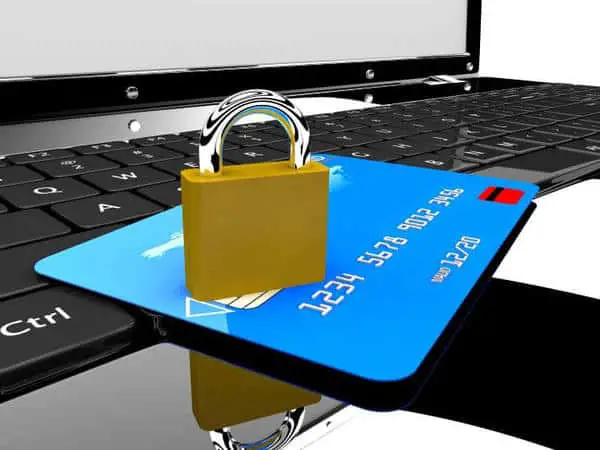
It can be nearly impossible to 100% fully safeguard yourself and your finances from identity theft. The good news though is that there are steps you can take that make the chances of it happening to you virtually nonexistent.
Scammers and fraudsters will use every single tool at their disposal if they’re determined enough. Opportunistic scammers will use whatever leverage and scare tactics they can find to exploit the system. For example, despite nearly the entire world is on lockdown for the Covid-19 crisis, scams and identity theft rates have shot through the roof as a result of the opportunity presented to them from the world being both scared and distracted.
We have outlined the 11 most effective ways to not only detect but also protect yourself from identity theft, as recommended by experts.
- Use strong passwords and dual-factor authentication (2FA)
Passwords are essential keys to your personal information, which makes them valuable to thieves. When choosing your password, include a mix of numbers, characters, and symbols and alternate between lowercase and uppercase letters. Keeping track of your differential passwords is another aspect you should keep in mind when furthering protecting your identity.Although saving them in your phone might be the simplest answer, we recommend keeping your passwords safely tucked away on a piece of paper in a safe place you have access to. Alternatively, there is password management software that will encrypt and safely store your passwords for you.
When enrolling within a website that requires you to create a password, look for websites that offer dual-factor authentication (2FA) to provide your accounts with an extra layer of protection. 2FA methods are time-sensitive and can include security questions, push notifications, and even SMS messages to ensure the correct user is logging into their account. It’s a way to further authenticate that you are the intended user of the account you are logging into.
- Order your free credit reports
Your credit report will be used to gain access to different financial aspects of your life, making it a crucial kind of information that should be constantly protected. Consistently monitoring and requesting your free credit report is a great way to make sure you are aware of any changes that could signal an identity theft attack. Equifax, Experian, and TransUnion will each allow for a free credit report once a year, so you can be on the lookout for any fraudulent transactions or accounts you did not open. If you become aware of any debts that are not from you, you should report the identity theft as a fraud alert on your report and open a case so it no longer affects your credit score.The FTC operates a free credit reporting website,AnnualCreditReport.com – all other services are privately owned.
Buy your credit reports – If you would like more access to your credit score, you can pay to have your credit report sent to you as often as you’d like. This ensures you have access to check your accounts for any fraudulent charges, suspicious activities, and errors you did not make. Even if you don’t want to regularly pay for a service like this, you should still request your free copy once a year at the very least. - Freeze your credit reports
If you are worried about your credit score being breached, you can also freeze your credit report. A credit freeze will not pause your credit score, but it can prevent anyone from being approved for any kind of credit card or loan, making it impossible for hackers to access your accounts.The freeze will remain indefinitely until you, the account consumer, lifts the freeze. Keep in mind this will not inhibit the use of your current credit accounts, but will simply disable anyone from opening or applying for any new credit applications while the freeze is in place.
- Use a shredder
One of the easiest ways thieves can access your financial information is by digging through your trash. This is a literal instance where your trash is their treasure. If you are discarding receipts, documents, address labels, or any other piece of paper with any kind of identifying information on it, shredding it can provide an extra level of protection. (And yes, thieves still do dig through the trash of both companies and individuals.) - Lock up your checks and important documents
If there are documents that you decide to hold on to and not shred, make sure they are locked up in a safe place where others cannot access. This is especially true for any unused checks you also have. Printed on each of your checks are your account and routing number, which can be highly sought after for people attempting to steal your identity. If you are holding onto old checks you will never use, we recommend shredding them, even if they have an old address or old account information printed on them. - Monitor your accounts online
Getting in the habit of looking over your accounts each month is a great habit to get into. It ensures you are keeping a close look at your accounts and looking for discrepancies that may indicate an attempt or successful identity hack. If you happen to notice something you don’t recognize any of your accounts, reach out to that company immediately. Most companies also offer the ability to set up potential fraud alerts so you can be notified when there is suspicious activity on your account and hopefully stop the theft before it happens.If you are planning on going on vacation, reach out to your banks and notify them that you will be traveling and using your cards outside your normal areas. If you have security alerts set up on your bank account, the first sign of irregular use may cause your bank to freeze your account temporarily to stop any fraudulent activity. While on vacation, it’s important to still remain vigilant on your accounts to ensure while vacationing, your accounts and information are still safe.
- Enroll in credit monitoring
Life sometimes gets too busy to constantly be on top of watching your accounts for any suspicious activities, which is where credit monitoring services can be extremely beneficial. Credit monitoring services watch your credit report on your behalf and instantly notify you if anyone tries to use your data or open a new credit account. Enrolling in these kinds of programs is the best identity theft protection feature especially if those accounts that have previously been breached, to stay on top of possible charges and changes to your credit that you did not do. - Stop pre-approved credit card offers
Whenever a credit card company sends you a pre-approved credit card offer, a thief that intercepts your mail will easily be able to open up a card in your name. Usually, identity theft from pre-approved offers is from someone you know or someone that’s close to you. The U.S. Postal Service often gives consumers a false sense of security about their information and how it’s handled. - Safeguard your Social Security number
Your Social Security number is vital in identifying consumers for employment, tax, and credit purposes, making it one of the most crucial aspects of your identity to protect. Most companies will only ask you for the last four numbers of your Social Security number for verification, so be extremely cautious with companies that ask for your entire number. A good rule of thumb is to never give out your entire SSN, both online and over the phone.You should probably also avoid carrying your Social Security card in your wallet or purse because you are opening your SSN up to the vulnerability of being stolen and used without your consent. If your wallet is stolen and you are carrying your card, thieves instantly have access to all types of information they could use to steal your identity, so it’s better to keep it locked up in a safe place. Safeguarding this personal information, in particular, can protect yourself as a consumer against identity theft and any other criminal activity.
- Protect your mobile devices
We keep our phones with us all the time and use them as a way to store sensitive data to be available at our fingertips. The only problem with this is if it’s that simple for us, it will be just as simple for thieves to steal your phone and allow them access to important and private information. Thankfully, cell phones come with multiple types of security, we simply just have to toggle them on.Take measures to initiate identity theft protection by using a locking feature on your phone. There will be a place to set up an auto-lock feature, that locks your phone down after a certain period of time. Setting your phone to auto-lock after 15 seconds can help prevent people from simply picking up your phone and accessing your information when you aren’t looking. One of the easiest ways to add security to your phone is by setting a passcode. Most manufacturers have created both numerical pin numbers and alpha-numeric options, so you have the freedom to set your password to something familiar to you, and only you. When deciding on your password, it’s best to create a rather complex one that eliminates the chance of hackers and thieves guessing your password and make sure you keep it private. You can also add your fingerprint and even facial ID on most phones to further add another level of security to your mobile phone.
There are a few other precautions to utilize in regards to your cellphones that can prove beneficial against hackers protecting your information. When you are out and about, be wary of accessing free and public wifi connections. Unsecured networks are a simple way for hackers to also connect to your device, opening yourself and your device up to potential hacking. The same goes for downloading any applications, ensuring you are only downloading additional resources on your phone from reputable sources can provide an added aspect of security.
- LifeLock – One of the most recognized names in the industry. The owner himself has had his identity stolen a few times, and they settled a big FTC issue back in 2015. With those two issues out of the way, they have actually grown to be a pretty reputable company.
- Complete ID– These guys are owned and operated by Experian, one of the 3 main credit reporting agencies. Although they work in tandem with the other 2 agencies to ensure full and proper coverage
- Identity Guard – Did any of you happen to catch the Jeopardy special with IBM’s Watson computer? Well, Identity Guard is actually powered by Watson which gives them a unique AI-powered perspective on credit monitoring and protection.
- IdentityForce – One of the more expensive options, IdentityForce goes way beyond credit monitoring. They dig deep into personal and public records, payday loan applications, court dockets, arrest reports, and they even check some of the darker places on the web to ensure your information isn’t being sold
- PrivacyGuard – They’re very similar to the other companies mentioned, but we want to give them bonus points for offering a $1 Million identity theft insurance policy and for letting users try out their services for just $1. It’s a great option for those that are on the fence about identity theft protection services.
- Financial Goals & Objectives – How To Set Financial Goals
- 15 Proven Strategies To Pay Off Your Credit Card Debt Fast
- A Simple Guide to Credit Report vs Credit Score explained
- Insanely Easy Ways To Get A Free Credit Report
- Drowning In Debt: The Definitive Guide To Debt Management & Paying Debt Off
- How does Consumer Credit Counseling Services Help to Tackle Credit Problems
- The Practical Guide to Purchasing Your First Investment Property
- Renting vs. Buying a House Debate: What’s Best For You?
Identity Theft Protection Services
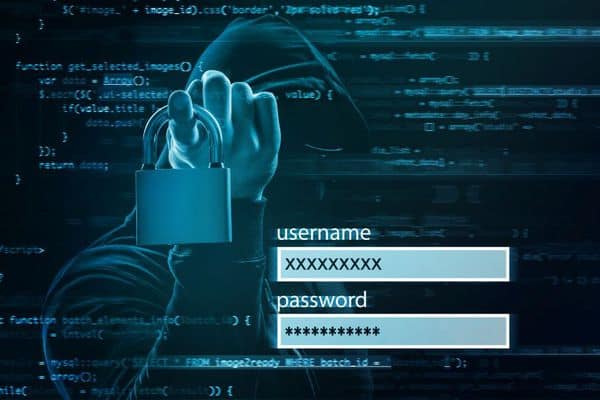
Whether or not you’ve been a victim of identity theft, you may want to consider a more hands-off approach by way of identity theft protection services. Now, before we dive into this one, we need to point out that the name is a bit misleading because no company can truly protect you from identity theft.
These companies offer credit monitoring and identity theft protection or recovery. Credit monitoring services provided will keep a close eye on your credit history, usually across all three bureaus, and if anything seems out of the ordinary they will either notify you or shut everything down if they have strong suspicions that thieves are at work. The recovery services simply help you bounce back after an attack has happened.
These services cost money but many of them do include identity theft insurance that will cover you for any losses that may incur should they be unable to prevent an attack on your identity. Before you pay for any protection or monitoring services, it’s always best to check out what the FTC’s consumer division says about identity theft protection services.
With all of that having been said, here are some of the top identity theft protection companies. These are in an unbiased, non-specific order.
Identity Theft Is Not A Joke, Jim!
It’s hard not to picture the bit with Dwight and Jim from the office that somehow makes identity theft seem super lighthearted and comical. In the real world, identity theft is one of the most detrimental things that can happen to a person or their family. Houses have been foreclosed on, vehicles repossessed, credit history’s ruined, necessary medical procedures not covered, and even innocent victims have been arrested.
Identity theft protection is key, although it’s nearly impossible to 100% fully safeguard yourself, credit, and your finances from it. But you can minimize it by educating yourself is the best thing you can do, and by reading this article you’ve already taken that first step. So whether you’re trying to prevent theft, bounce back from theft, or just want to learn more about Identity Theft, we hope our Identity Theft Guide services as a great starting point. Be proactive, be persistent, and stay safe!
PIN ME
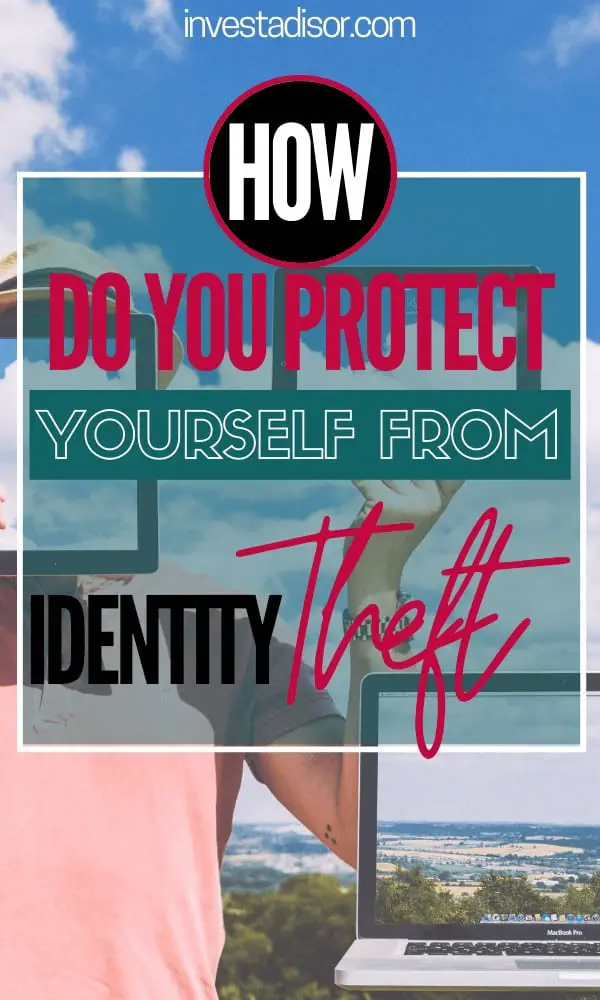
You may also like the following posts:



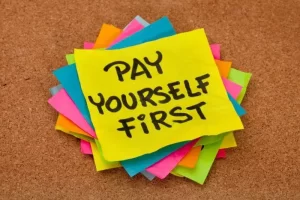

















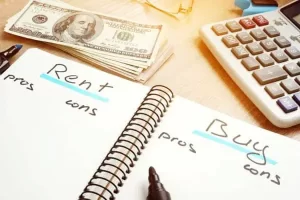










1 thought on “Identity Theft Protection: How to Make Sure You and Your Finances Are Safe”
Pingback: Insanely Easy Ways To Get A Free Credit Report - Investadisor